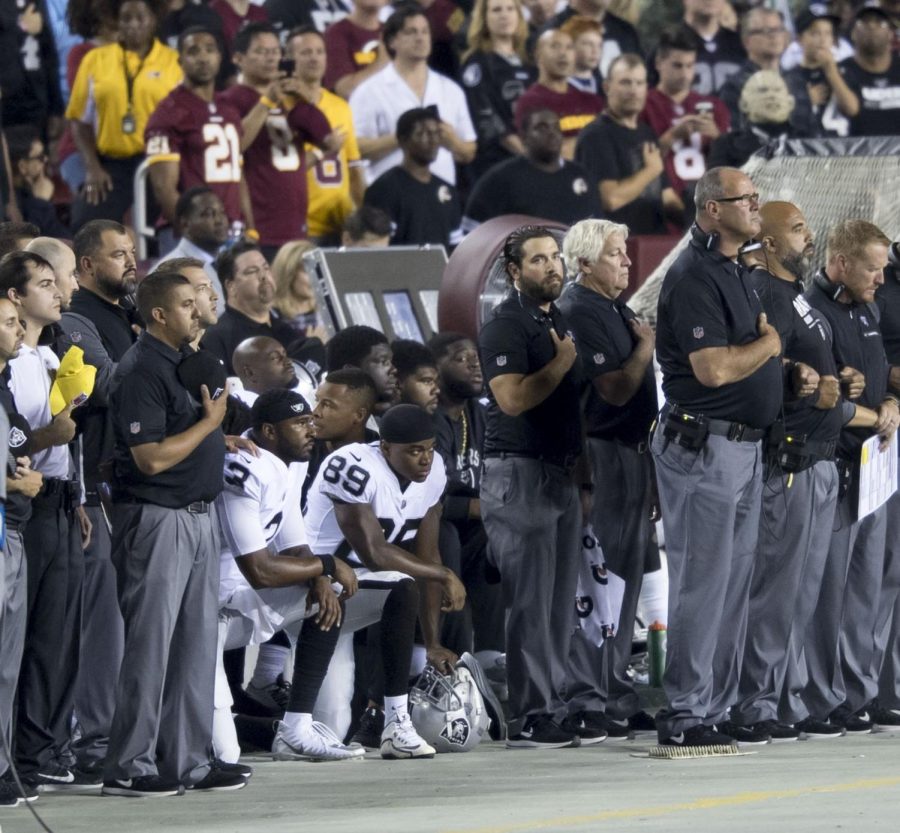The Intersection of Athletics and Civil Rights
February 8, 2023
Activism and athletics have gone hand-in-hand for generations with sports tied to politics since Ancient Greece. To write on the history of such a topic is out of the scope of this article, however, we can hope to shed light on recent endeavors. Here, at the dawn of Black History Month, The Paper Cut wants to honor those Black sportsmen who made history in the fight for civil rights. From Muhammad Ali to Colin Kaepernick, let’s dive into the African American athletes who fought for equality.
Muhammad Ali
Although most definitely not the first in the battle for freedom, Ali is certainly one of the most memorable from 20th-century activism.
Born in 1942, Ali, born Cassius Marcellus Clay, Jr., grew up in the deeply racist and highly segregated American South. At age 12 Ali, whose bike had been stolen, approached one Joe Martin, who offered to teach him boxing. Ali fell under Martin’s tutelage from 1954-1960, who accompanied him to the 1960’s Olympics, where the young champion won his first gold medal.
In 1964, Muhammad Ali won the title of heavyweight champion of the world. In 1967, Ali refused conscription to the U.S. military on religious grounds, having joined Malcolm X’s Nation of Islam in 1964. Malcolm would go on to be a brother and mentor for the young Ali, helping him refine his activism for future endeavors. For his protest, he was stripped of his Heavyweight title and banned from boxing, sentenced to five years in jail, barred from working while he had a pregnant wife to support, and his passport was revoked.
Unlike many black athletes before him, Ali’s uncompromising black pride and his refusal to be content with the status quo led him to protest by demanding more, even to the chagrin of other black athletes, like Jackie Robinson and Joe Lewis, who denounced him. Ali has cemented his reputation as a key player in the Civil Rights movement, as well as the prototypical template for all future dissidents and objectors in the world of athletics.
John Carlos and Tommie Smith
Before Kaepernick and Reid, there was Carlos and Smith.
The 1968 Mexico City Olympic Games became a battleground for civil rights with the re-admittance of Apartheid South Africa. The Olympic Project for Human Rights, of which many prominent black athletes participated, including Carlos and Smith, had issued a boycott of the games. Almost all African nations withdrew their teams, with countries of the developing world also withdrawing in a show of solidarity. With mounting pressure and the need to maintain integrity, the IOC re-expelled South Africa.
During the 200-meter dash, Smith finished first and Carlos third. During the awards ceremony, Smith and Carlos, each wearing a black glove, no shoes, and black socks, raised clenched fists over their heads—the Black Power Salute— as the American National Anthem played, in solidarity with their black brothers and sisters suffering unequal rights across the world.
For this, they were expelled from the Olympic Village by the IOC. When they returned home, they and their families received death threats and were lambasted by racist media outlets, though they would go on to continue their athletic careers.
Arthur Ashe
A tennis legend, Ashe’s activism shouldn’t go overshadowed. In March of ‘68, Ashe spoke at the behest of Rev. Jefferson Rogers on the role of the Black athlete in the fight for Civil Rights. A year later, ranking No. 1 in the U.S., he would apply for a visa to South Africa, which was denied. Becoming a vehement enemy of Apartheid, Ashe would campaign against South Africa’s membership in the International Lawn Tennis Federation, using his numerous attempts at applying for visas and his subsequent rejections as evidence of discrimination. Ashe was eventually permitted into South Africa in 1973, becoming the first black man to participate in a South African national tournament.
In both 1985 and 1992, Ashe would be arrested for protesting Apartheid and the treatment of Haitian immigrants respectively. He refused to slow down after retirement, establishing multiple philanthropic foundations and campaigning for civil rights.
Colin Kaepernick and Eric Reid
49ers teammates and close friends, Kaepernick and Reid made national headlines in 2016 as they knelt in protest during the playing of the U.S. National Anthem. They both sought to send a message against racial inequality, injustice, and police brutality.
The two, like their predecessors in Carlos and Smith, faced outrage from conservative outlets, though their actions equally inspired a young generation of disillusioned liberals and activists. The movement they inspired would receive even more attention in 2017 as then-President Donal Trump called for the NFL to drop players who knelt during the anthem.
In the same year, both would file grievances with the NFL, citing collusion to keep them out of the NFL, though these charges would be dropped in 2019 after both parties reached a confidential agreement.
Their activism hasn’t ceased, with Kaepernick continuing his vocal social commentary on social media through the years, most recently releasing a project in collaboration with Medium containing essays and articles by multiple authors on the abolition of police and prisons.













Barany • Mar 3, 2023 at 2:52 pm
Very insightful!